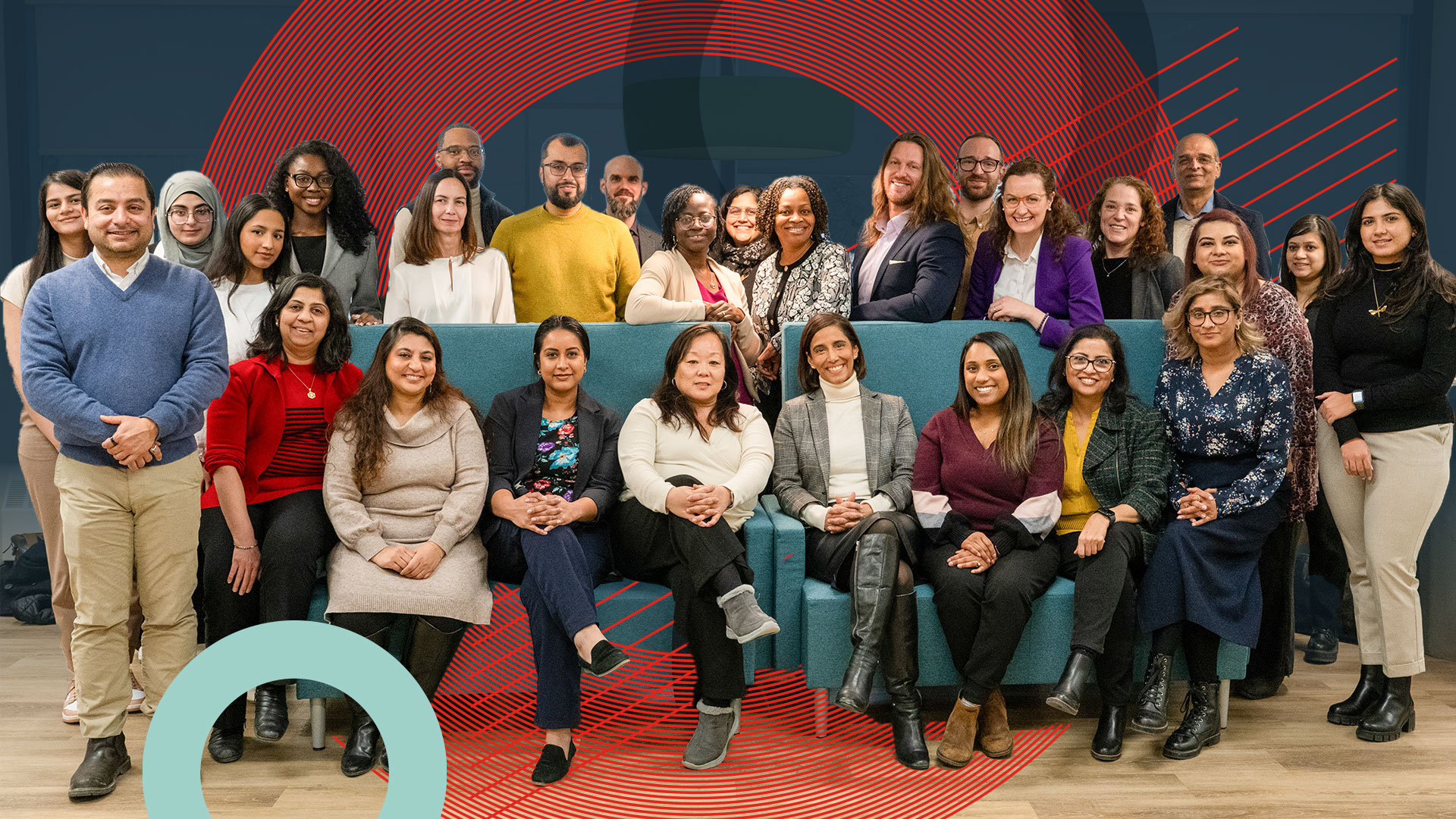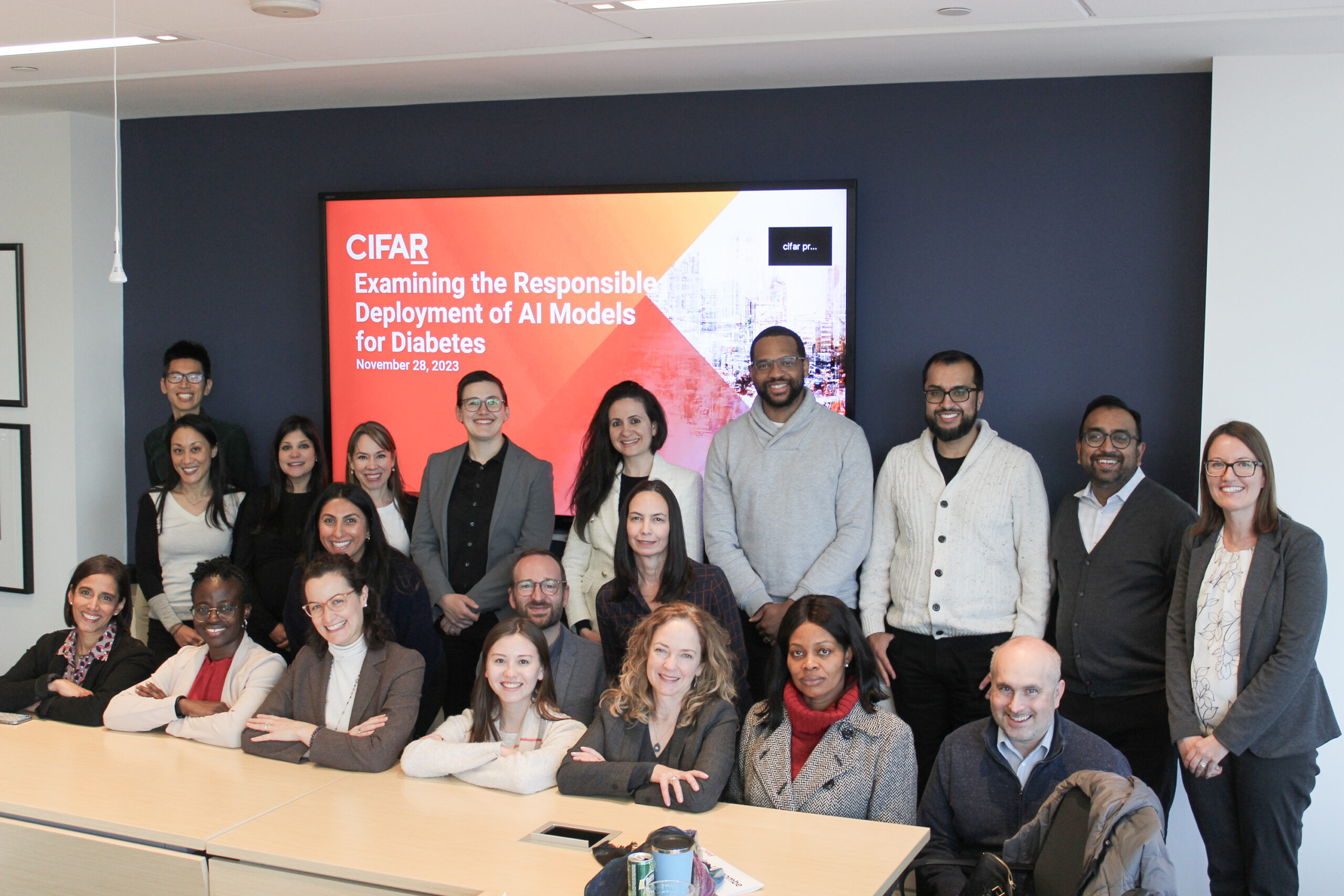By: Justine Brooks
31 Mar, 2025

Within the past 30 years, the number of people living with diabetes worldwide has increased from 200 million to 830 million with the majority of cases being type 2 diabetes. In Canada alone, there are approximately 3.8 million people living with diabetes, over nine percent of the population. This rapidly increasing disease has a wide range of health complications including blindness, kidney failure, heart attacks, strokes and more. It also carries a significant economic burden to health care systems, and is projected to cost approximately $5 billion by 2030 in Canada.
Traditional methods to address these issues have faced challenges predicting population risk factors and testing interventions prior to implementation and scaling. AI may hold a solution, using complex data to not only predict the risk of diabetes in a population, but also prevent it by understanding how socio-ecological factors and demographics affect the risk and outcomes of diabetes.
Formed in 2023, the AI for Diabetes Prediction and Prevention Solution Network plans to develop a Responsible AI for Health Systems framework to deploy a machine learning model that will predict the risk of diabetes at a population level through a publicly available dashboard. It will be deployed in Peel Region, a municipality in Ontario, Canada that has a particularly high prevalence of the disease with approximately one in six people living with type 2 diabetes, a number higher than the provincial and national average.

What initially began as a collaborative AI governance approach, consulting with policy makers, healthcare organizations and providers, has evolved into something more participatory, bringing community members, patients and caregivers to the decision-making table. The team has brought numerous individuals together through a series of meetings to inform the project, collaboratively uncovering ethical and responsible approaches to deploying the model at a population health level.
The most recent meeting in February brought together more than 40 local community members, health care providers and policy decision-makers who discussed and provided feedback on the most recent iteration of the platform’s dashboard and received updates on the project. The community members also posed questions and considerations, including the importance of transparency and diversity in who is developing the AI model and the need for more AI literacy at the community level.
Sadia Baig, Lead Programs Coordinator at the Kidney Foundation of Canada, discussed some of the barriers patients face in accessing care. “I find that there’s a lot of barriers within ageism, and the fact that people don’t understand that a lot of these diagnoses can happen at any age and any gender. Education is a big factor; I don’t believe there’s enough focus on education when it comes to diabetes and explaining the difference between type 1 versus type 2 for example.”
Another participant also noted the importance of access to reliable information. “There is so much information out there for people. How do we disrupt this routine to give them information that matters?” said Shailesh Desai, a pharmacist in the community.
The program’s focus on early intervention could address this challenge by identifying high-risk populations for policymakers and providers to focus their efforts and resources on. This kind of first-hand experience and insights is exactly what makes the project’s community engagement approach unique and valuable.
“AI tools for use in public health and health care are ultimately intended to impact peoples’ health and wellbeing. If we want to ensure that goal will be accomplished in a positive way without any harm, we need to work directly with community members to shape the way AI tools are designed and deployed.”
“AI tools for use in public health and health care are ultimately intended to impact peoples’ health and wellbeing. If we want to ensure that goal will be accomplished in a positive way without any harm, we need to work directly with community members to shape the way AI tools are designed and deployed,” commented the programs Co-Directors Jay Shaw and Laura Rosella, both professors at the University of Toronto.
Following the meeting, the project team will apply the community’s feedback to the dashboard, improving its interface and utility. The team intends to publish a paper on their process that will further demonstrate the effectiveness and importance of community engagement in developing responsible AI systems.
Joanne Okungbowa, a Masters student at the Dalla Lana School for Public Health at the University of Toronto hopes this project, while specific to type 2 diabetes, will inspire others to apply the framework in their own projects on major health conditions. “I think a lot of people can uptake it, and the great thing is that they don’t have to redo everything. They can just pick up and apply the framework to whatever their focus is, whether it’s heart disease or cancer, they can work together collaboratively to just tweak it a little.”
Banner photo credit: Jorge Rios